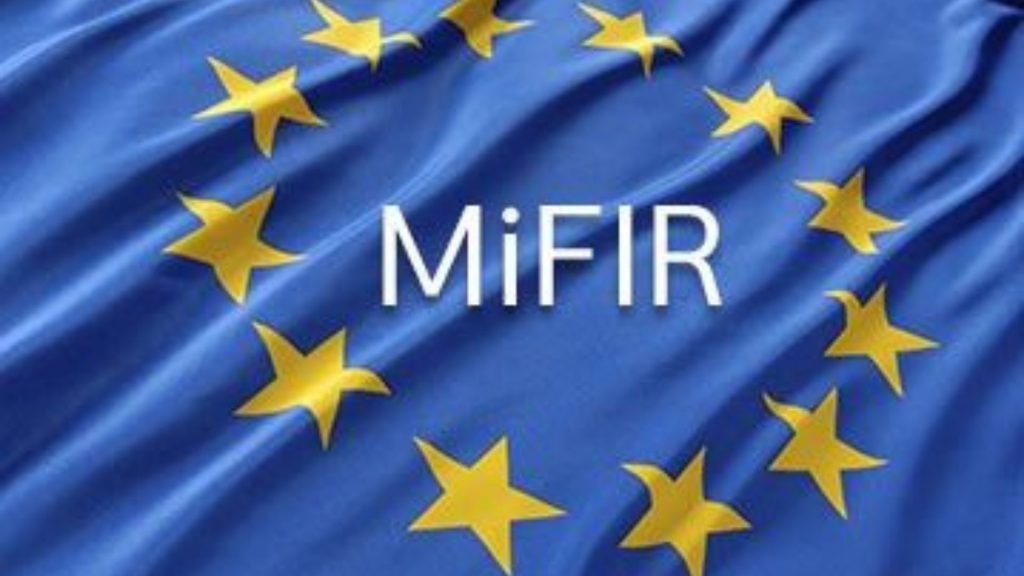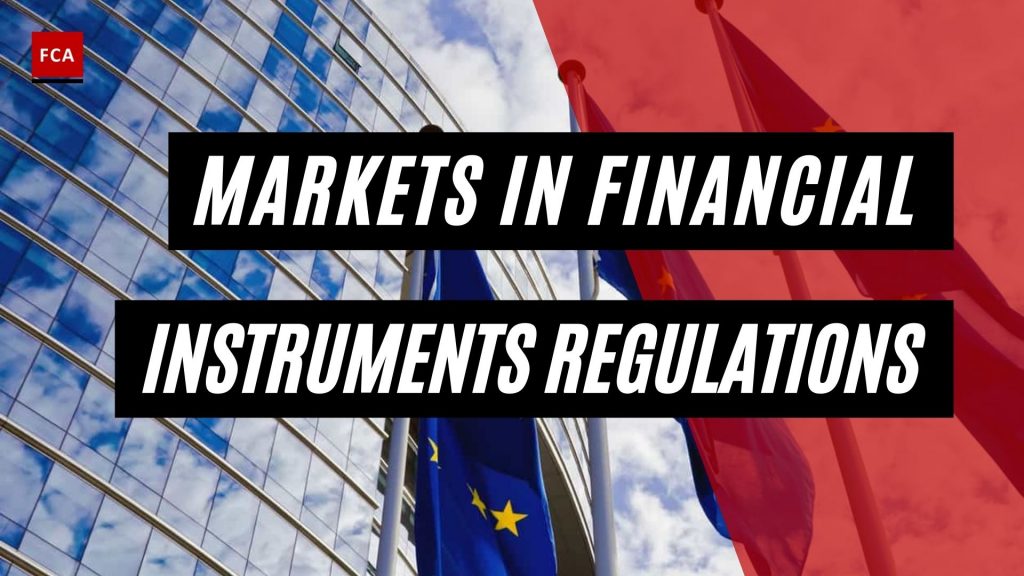The Markets In Financial Instruments Regulations (MiFIR) provides rules and guidelines on the execution platform and execution of the transaction. The Markets in Financial Instruments Regulation accompanies the European Union’s second Markets in Financial Instruments Directive or MiFID II. As MiFIR is a regulation, it applies directly to EU member states. This is in contrast to a directive, which member states have to transpose into national law and can modify to a limited extent provided the original intention of the directive is maintained.

Markets In Financial Instruments Regulations (MiFIR)
MiFIR is a regulation that supplements the European Union’s second Markets in Financial Instruments Directive, or MiFID II. Because MiFIR is a regulation, it applies directly to EU member states. In contrast, a directive is something that member states must transpose into national law and can only modify to a limited extent as long as the original intent of the directive is maintained.
Markets In Financial Instruments Regulations imposes numerous obligations on firms in the European Economic Area, including the requirement for firms to publicly disclose certain quotes and trades – known as pre- and post-trade transparency, respectively.
Markets In Financial Instruments Regulations enforces obligations on companies in the European jurisdiction including the requirement to disclose certain quotes and trades to the public. MiFIR contains standards and requirements which have an immediate effect on trading platforms and investment firms, their systems as well as their trading processes. The focus point is derivatives and ensuring trade transparency. The MiFIR widens the obligations to the pre-trade area, and the range of reportable securities or instruments is broadened.
Transparency Requirements
Following are the transparency requirements, covered under the MiFIR:
Trading Platform:
- Pre-trading transparency: Indication of quotes of trading offers
- Post-trading transparency: Display of traded quotes and volume
- Publication of the public data within 15 minutes
- exception regime
Investment Firms:
- Publication of offers
- Publication of trade details through an approved arrangement
- Obligation to report data to national competent authorities to determine the pre- and post-trade transparency
- Trading obligation to a regulated market
Transactions are required to be reported and recorded to be kept related to the trade transactions for operators, and users of MTFs, and OTFs. Reporting obligation of conducted trade transactions including trade decision information to the national competent authorities for operators of MTFs, OTFs and investment firms.
The requirements are supposed to improve the conditions of the trading, and clearing of the financial instruments, and appropriately record the transactions. This is essential for the integration of efficient, and safe EU capital markets. Smaller trading platforms and newly established platforms will benefit from optional transition periods. The transparent access regime will also apply to benchmarks for trading and clearing purposes. Transitional rules will ensure the smooth application of these provisions.
Regarding the trading directives, the reporting obligation of conducted trade transactions including trade decision information to the national competent authorities for operators of MTFs, OTFs, and investment firms.
Investment firms that execute transactions in the financial instruments are required to report complete, and accurate details of such transactions to the competent authority as quickly as possible, and no later than the close of the following working day. The competent financial market authorities are required to establish the necessary arrangements to ensure Markets Compliance so that the most relevant market in terms of liquidity prevails.
The reports are required that detail the names, and numbers of the financial instruments bought or sold, the quantity, the dates and times of execution, the transaction prices, a designation to identify the clients on whose behalf the investment firm has executed that transaction, a designation to identify the persons and the computer algorithms within the investment firm responsible for the investment decision and the execution of the transaction.
A designation to identify the applicable waiver under which the trade has taken place, means of identifying the investment firms concerned, and a designation to identify a short sale as defined in Article 2(1)(b) of Regulation (EU) No 236/2012 in respect of any shares within the scope of Articles 12, 13 and 17 of that Regulation.
Final Thoughts
Directive 2014/65/EU, also known as MiFID II (Markets in Financial Instruments Directive II), is a European Union legal act. It, in conjunction with Regulation (EU) No 600/2014, establishes a legal framework for securities markets, investment intermediaries, and trading venues. The directive provides harmonised regulation for investment services in the European Economic Area member states — the EU member states plus Iceland, Norway, and Liechtenstein; the UK will continue to implement the directive during the transition period. Its primary goals are to increase competition, protect investors, and level the playing field for market participants in investment services. Directive 2004/39/EC is repealed (MiFID I).








